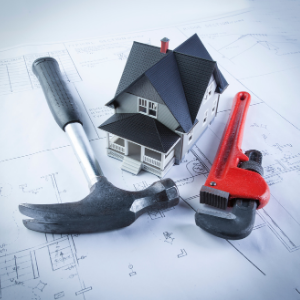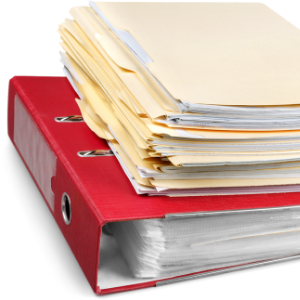
Understanding the timeline between an appraisal and closing is crucial for anyone navigating the home-buying process in Washington. This period can significantly impact your plans, especially in the current fast-paced real estate market. Appraisals are a crucial step, as they determine a property’s market value and directly impact financing conditions. While the timeline can vary due to several factors, it’s essential to know what to expect to ensure a smooth transaction. This guide provides comprehensive insights into the appraisal process, helping you navigate the final stages before closing on your new home in Washington.
Key Highlights
- Appraisals determine property value, influencing loan conditions and closing timelines, which are crucial in Washington’s fast-paced real estate market.
- Key appraisal steps include property inspections, analysis of comparable properties (comps), and submitting findings for lender review to determine loan amounts.
- An appraisal contingency allows for renegotiation or contract withdrawal if the appraised value is lower, thereby protecting buyers’ interests.
- Smooth appraisals require proper home preparation, which includes enhancing curb appeal, updating interiors, and addressing minor repairs.
- Efficient closing involves clear communication, timely document submissions, and resolving potential appraisal discrepancies swiftly.
Understanding the Appraisal Process in Washington
The appraisal process in Washington is a critical component of the property transaction journey, ensuring that both buyers and sellers engage in fair real estate transactions. This process helps determine the actual value of a home, based on various factors unique to the region’s real estate market. Below, we’ll explore both the key steps involved and the importance of appraisals in successful home transactions.
Key Steps in the Appraisal Process

Understanding the appraisal process in Washington is crucial for both buyers and sellers seeking a smooth real estate transaction. Each step is designed to determine the property’s fair market value and ensure transparency during the financing and closing stages.
The process begins with hiring a licensed and certified appraiser, who performs a detailed inspection of the property. The appraiser evaluates crucial factors such as the home’s size, location, condition, and proximity to amenities. These characteristics significantly influence the property’s appraised value. Additionally, appraisers review recent comparable home sales, or “comps,” in the area to benchmark the property’s worth against similar listings in the Washington real estate market.
During the appraisal, the appraiser assesses both the interior and exterior of the home. This includes examining the quality of construction, age of major systems, upgrades, and any deferred maintenance issues. Small details—like curb appeal, energy efficiency, and layout—can all impact the overall valuation. Homeowners who prepare their property in advance often receive more favorable appraisal results.
After the inspection, the appraiser compiles all findings into a comprehensive appraisal report. This document summarizes the property’s condition, comparable sales data, and market insights that justify the estimated value. The report is then submitted to the lender, who uses it to determine the maximum loan amount that can be approved. In Washington’s competitive real estate market, this step is crucial because appraisal outcomes can directly influence negotiations and closing timelines.
Upon receipt of the report, it is the obligation of the lender to review the appraiser’s valuation to determine if there are any inconsistencies with the financing provisions that the buyer intends to utilize. Any differences can result in the lender having to arrange for further reviews, and possibly, a complete re-appraisal. These conflicts can be settled, and therefore, the deal can be kept on schedule if constant communication is maintained among the appraiser, lender, and buyer.
The entire appraisal procedure can be carried out efficiently, as long as the time factor is respected. Missing document submission deadlines, increasing the number of appointments that must be kept, and the need to communicate with a larger number of people are the biggest obstacles to maintaining the timeline. The closing timeline can be followed more easily by buyers and sellers if complete documents are prepared, the property is easily accessible, and the questions asked by the lender or appraiser are answered promptly.
The entire appraisal process can be completed more efficiently if buyers and homeowners are active participants, as this leads to a seamless transition between appraisal and closing, ultimately enhancing the overall real estate experience.
How Soon After an Appraisal Can You Close?
Understanding the timeline between an appraisal and closing is pivotal for any home transaction in Washington. After receiving an appraisal, several factors can determine how quickly you can close, shaping your overall closing process experience. Recognizing how elements like legal documentation and potential delays interact can significantly impact your timetable. Common issues can extend the closing timeline, complicating the process. By understanding the detailed steps from appraisal to closing, you can better anticipate potential challenges, ensuring a smoother transition as you finalize your real estate purchase or sale.
Factors Affecting the Closing Timeline
The closing timeline post-appraisal – for any real estate transactions – is enormously consequential to a myriad of factors, which either help accelerate or prove to be a hindrance towards accomplishing a real estate deal. Knowing such factors assists buyers and sellers in setting valuable targets that they can achieve by taking proper steps to reach their goal of a closing date as early as possible.
In most cases and for most people, the first step they take is the appraisal. While most appraisers take only a few days to finalize a report, the sheer backlog, high demand, and challenging property appraisals can hinder the appraisal process. An untidy property with no clear documents and unreliable contemporaneous data regarding the property’s assessment, as well as geotechnical documents, proves to be a common appraisal roadblock in these circumstances.
Right after the mortgage marketplace is opened, the mortgage lenders’ valuation appraisers analyze the report to confirm whether the property’s value is equal to or more than the total mortgage loan amount. This is the most crucial point related to the closing of the deal. More often than not, deals that face immense stagnation do so because one or more parties face the issue of appraisals being lower than the amount calculated. Reluctance towards any kind of negotiations or discussions leads to the concerned parties becoming highly frustrated, as the process appears to be relatively stagnant.
The pace at which a property is closed is influenced by how far along the title searches are conducted. Any lien identified at this stage in the process is a stub that needs to be resolved before the title can be executed. Titles that are complex in nature can add delays to the completion date. Such unfortunate delays can be alleviated by both the buyer and the seller if title documents are checked in the preliminary stage.
Contingencies in the purchase agreement impact the closing date. Timely closure of these deadlines is achieved through proper coordination among the buyer, seller, agents, and lenders. Communication delays, even slight in nature, can prove costly by creating a lag in other sequences. Collaborative efforts to set proper closure to these deadlines can mitigate the extraneous. This streamlining has the potential to help reduce unwanted surprises.
A closing process can be undone if unawareness is the primary issue. Delays in processes such as the lender’s review and appraisal, along with the signing of the concluding documents, can, within a structured timeline, help the seller and the buyer to eliminate disruption.
Evaluating and managing these elements ensures that the transition from appraisal to closing remains fast and uninterrupted, even in competitive markets like Washington’s.
Common Issues That Delay Closings After Appraisals
Although an appraisal may be deemed complete, specific, unanticipated problems could surface that may interfere with the closing process for a particular piece of real estate. Recognizing these issues in advance enables buyers and sellers to prepare, which in turn makes the closing process faster and smoother.
Most of the time, closing delays in transactions stem from the appraised valuation of the home differing from the purchase price. In such a case, the lenders may be unwilling to complete financing on the purchase until the discrepancy is settled. This often leads to the annoying stage of renegotiation, where the parties involved must agree to new conditions, the most favorable being a lowered sale price or some other measure to equate the valuation. In the case of a ‘buy appraisal clause’, buyers are contracted to renegotiate the purchase price contract if the property is valued at a greater price than the purchase price. Instead, slow and positional negotiation is typically preferable to settle, assisting both sides and keeping the contract on course.
Unresolved title issues are another major factor contributing to the delay of the closing process. These could include unrecorded liens, boundaries, or errors in the property records. Closing the sale will be delayed if the title company identifies any title issues during due diligence. Title problems are avoided if a preliminary title search is conducted, debt is cleared, and any title encumbrances are dealt with in advance.
There are financing challenges that arise even with a pre-approved loan. These issues become apparent after the property has been purchased and has been evaluated. Discrepancies in the evaluation documentation, particularly in the review of income, credit, and employment, are the most likely. Most will have to wait with crossed fingers. The chances of this occurring are minimal if the buyer remains in contact with the lender and all loose ends, such as major purchases desired before closing, are addressed promptly.
Being proactive is the best way to avoid setbacks between appraisal and closing. Buyers and sellers can:
- Review property title records early in the process.
- Stay responsive to lender and agent requests.
- Prepare for possible appraisal gaps with financial flexibility or negotiation strategies.
- Maintain regular communication with all parties involved to resolve emerging issues quickly.
By anticipating these potential challenges, both buyers and sellers can streamline the post-appraisal process and move confidently toward closing. In Washington’s competitive real estate market, a proactive approach not only saves time but also reduces stress—ensuring the journey from appraisal to closing ends with a successful transaction.
Appraisal Contingency and Its Impact on Closing
Understanding appraisal contingencies is vital for navigating real estate transactions smoothly. An appraisal contingency serves as a protective measure for buyers, allowing them to back out of a purchase agreement if the home’s appraisal value doesn’t meet the lender’s specified amount. This section examines the intricacies of appraisal contingencies, providing insight into how they affect the closing process and what buyers can do to manage potential delays effectively. By understanding the nuances of this contingency, prospective homebuyers in Washington can mitigate risks and streamline their journey from appraisal to closing.
Understanding Appraisal Contingency
An appraisal contingency is a crucial component of real estate agreements that safeguards a buyer’s interests throughout the entire home purchase process. It guarantees the home’s appraisal value coincides with the purchase price. For instance, if the appraisal value is lower, the buyer is entitled to revise the contract terms or withdraw from the contract altogether, and may retain the earnest money deposit.
An example of where this clause would be necessary is in the Washington real estate markets. With the volatility of prices, property price changes, including appraisal contingencies, would be shielded from overpaying for a home and buyers loaning more than the home is worth.
An appraisal contingency is a protection from financial loss for buyers. It protects them from holding a loan that is worth more than the asset. For lenders, the clause adds extra comfort because it ensures that the property being taken as collateral for the loan being advanced substantiates it. This promotes a suitable balance and protects all parties involved in the transaction.
The depreciation of a property’s value during an appraisal, as well as its appraisal contingency clause, can lead to a possible change in the contract terms. This is especially true in the real estate situation, where the appraiser determines the value of a property and assigns a tentative value. Although it may postpone the closing of the deal, the appraisal creates an opening for both the seller and the buyer to constructively finalize the terms and conditions of the contract through the appraisal data, which is fair to both parties.
The process of conducting an appraisal typically takes several days, depending on market demand and the lender’s schedule. Close communication with real estate agents and lenders is crucial to tracking progress and pinpointing issues. Delays in the appraisal process and a lack of communication can undermine the entire process.
Even with efficient communication and processes, buyers must come prepared; otherwise, it will be tremendously difficult to navigate an appraisal ‘hedge’, which will result in the buyers losing leverage.
Buyers can help their cause by:
- Doing market research to ascertain the sale price of comparable properties in the area.
- Keeping up to date with the real estate market in Washington and any economic activity that may influence appraisal values.
- Working with their real estate appraisal team to tackle an appraisal that is anticipated to fall short.
With this level of preparedness, buyers will be better equipped to tackle any potential delays that may arise, rather than being reactive, resulting in a far less stressful transaction. Buyers who stood to gain the most from the transaction were most at ease when they understood the purpose of the appraisal contingency and were willing to communicate with lenders, sellers, and agents.
The most economical solutions were achieved when appraisal-related issues were addressed proactively, which is also indicative of competitive pricing. Such actions ensured that the closing date would be met, the deal would be completed, and the property would remain in the competitive Washington real estate market.
How to Navigate the Appraisal Contingency
In balancing the appraisal contingency with other closing processes, the appraisal contingency supports the closing schedule. The appraisal contingency clause allows buyers to review the purchase agreement and decide whether to make counteroffers or withdraw from the purchase entirely if the appraisal value is lower than the purchase price. Knowing your rights and understanding the left and right sides of the issues at hand is crucial to make a timely response, ideally one that leads to the consolidation or closing of the deal. Preliminary steps include closing the deal promptly or as soon as possible.
Knowing what rights and privileges come with their side of the agreement. Every buyer needs to know which steps can be financed, which require formal documentation, and the possible closing dates by which their appraisal will be completed. Negotiations are easily controllable with the lender and the real estate agent.
The buyer, on the other hand, has a deadline to adhere to. Closing quickly is a priority, especially if the purchase price is below the set value. Paying the estimated value is possible, and saving the deal is also possible, which is a more innovative approach.
- Negotiation with the seller that is in the best interest of both parties should be the top option.
- If the payer is an option, that could also be something to consider if all necessary pieces are present in the transaction.
- A secondary appraisal is where the highest interest can lie, particularly when there are considerable misalignments.
Obtain a working knowledge of the analysis and assessment of the property in the broader context of a survey and its implicit idea. It can change the impact of the value ‘underlying’ it and frame it in another external perspective of what value the property holds, in case it uses the equity of the loan. Hence, good working and transparent conversations are necessary in keeping the closing timeline and other technical issues related to the suit or invoice on track.
Being aware of today’s real estate market trends enables you to predict possible issues that may arise during the appraisal process. Several weeks before an appraisal, find comparable sales (comps) in your area—these are the same data points appraisers use to assess value. If accurate comps are provided to the agent or appraiser, it is more likely that the appraisal reflects the actual market value. This can help support your case in instances where an assessment may be contested.
One of the best ways to avoid potential delays is to keep your lender, real estate agent, and seller informed. Be responsive and timely in providing any requested materials, and keep all parties informed of any changes that arise, ensuring everyone is on the same page during the appraisal review. This organized approach to the process minimizes unstructured plans and significantly increases the likelihood that the closing dates will be met.
Hiring professionals, such as real estate agents, appraisers, and even real estate lawyers, can alleviate the stress of dealing with the appraisal contingency. These professionals are able to provide the necessary support and advice in dealing with low appraisals, facilitate negotiations, and ensure that all contract requirements are fulfilled. Their input can be the distinguishing factor on whether the transaction closes on time or is significantly delayed.
A buyer can address appraisal contingencies with confidence by remaining informed, proactively communicating, and responding quickly to issues as they arise. In Washington’s fast-paced real estate environment, proper preparation, combined with professional assistance, not only reduces the likelihood of delays but also streamlines the home-buying process.
Preparing Your Home for a Smooth Appraisal
Preparing your home for an appraisal is a crucial step in ensuring a seamless property transaction. By enhancing the appeal and value of your home, you increase the chances of a favorable appraisal outcome, which can significantly influence the closing timeline. We will explore practical strategies to enhance your property’s value and discuss common mistakes that mortgage lenders often encounter during the appraisal process. Implementing these strategies can help ensure your home stands out positively in Washington’s dynamic real estate landscape.
Tips to Enhance Your Home’s Value

Making improvements to your home’s value and appraisal equity does work towards enriching your wealth and net worth. For a quicker sale, consider prioritizing these enhancements first. An appraiser will assess the operational condition and aesthetic value; thus, improvements in the valuable area will yield profits.
First impressions count, definitely, and with the Washington housing market, these improvements are even more critical. An initial inspection should examine the home’s outer walls, including trimmed bushes, oil stains, and a yellowish street that will now require painting — and quickly. The maximum conviction with the least guesswork and effort should dictate how the garage copes and how the lawn looks. A neat external view will enable the overall value appraiser to pull documents quickly.
The areas you should target, as most impactful, are the bathrooms and kitchens. These, like the rest of the house, will require a little investment. After investment, returns are the most important in the appraiser’s mind, so look for:
- New taps, out-of-date accessories, and knobs are removed
- Absence of hardware looks extreme, so retain the modern default refinished cabinets
- Meet your compatriots for bright lighting as it elevates newer
- Substitute gone for stones that are readily available in either slabs of granite, quartz, or marble
Determining appraiser improvement will add value to your home. Heuristic elements also matter, so enjoying the gentle husk of refinished hardwood or the chic modern feel of complete block-tile flooring.
Clear and uncluttered homes allow appraisers to evaluate the size and configuration of a residence without obstruction. Remove distractive pieces of furniture and personal artworks, as well as décor that does not feature prominently in the home. Engage in a professional cleaning or staging service, if applicable. By presenting an open and well-organized structure, it demonstrates good maintenance, which assists in the appraisal as well as the final purchase of the house. This makes maintaining the house and its surroundings very easy.
The correct functioning of all doors, windows, and utilities is necessary to assess the usefulness of a house. All components of the house, including electric wiring, plumbing, and HVAC, should be up to date and comply with government regulations. Modern and environmentally friendly appliances, such as LED bulbs, insulated windows, and Energy Star appliances, can be installed to enhance the value of the house and increase its desirability to prospective buyers.
Local market trends help form more rational predictions. Look for documents of recently sold properties, like “comps,” and observe where the most significant value is being added in the area. A real estate agent or appraiser who knows the market well can help the seller optimize the house improvements for better appraisal results.
Advanced preparation before an appraisal enhances appraisal value and facilitates a smooth closing; with proper preparation time, selling either to the open market or a private buyer becomes effortless. Knowing what an appraiser pays attention to helps to simplify the appraisal process in the Commonwealth of Washington.
Common Appraisal Mistakes to Avoid
Steering clear of common home appraisal errors is crucial in ensuring that your property transacts seamlessly from appraisal to closing. Even minor errors are enough to lower a home’s appraised value, which will slow down a sale. Below, we outline the most common blunders homeowners tend to make, along with the appropriate preventive measures.
Perhaps the most severe mistake an appraiser can make is failing to account for the value of minor repairs. Broken tiles, damaged fixtures, leaky faucets, or peeling paint may seem minor individually, but collectively, they can significantly reduce the value of your property. By making an appraisal after these repairs are completed and valuing the home, we can appreciate the value these repairs add.
An organized home is easier to navigate, and thus makes the appraisal process simpler. This is why mixed piles and stacks of papers should be dealt with at the outset. Moreover, a well-organized home is more pleasant to live in and always makes a positive first impression, which is crucial for the home’s final appraisal value. Engaging a quality, well-respected, and price-appropriate cleaning service can work wonders, especially in situations where a property is neglected. Minimally sufficient cleanup may work in case a cleaner, like the house’s occupants, has lived in the home.
A significant portion of sellers fail to mention recent renovations or home modifications that can substantially increase the appraised value of a home, which is a critical mistake. To make the appraisal more accurate, prepare detailed notes on any renovations, such as new roofs, new HVAC systems, remodeled kitchens, or upgraded bathrooms. Also, ensure that you include receipts and permits. This corpus helps the appraiser recognize the value that the owner has invested in the home, which in turn influences the value assigned to the house.
Failing to conduct a market comparative analysis for sold homes in your vicinity (comps) is another standard error. Knowing how other similar homes are priced in the local Washington real estate market helps in getting a more realistic expectation regarding the appraisal. Knowing how a particular neighborhood is changing gives you the ability to forecast the appraised value more accurately and handle pricing or negotiating discussions with greater confidence.
With the appraiser, there should be constructive and polite dialogue to achieve an accurate value. Do all the above, and you will also provide the appraiser with all the valuable data you have about your apartment. Unless there are major unforeseen events, no other activities should be planned for the day of the appraisal, as it is dedicated solely to that one appraisal. A cooperative attitude will also go a long way in ensuring that the company receives a favorable valuation.
With all these in mind, you are left with better chances of receiving a better valuation. It is reconciled with the more accurate appreciation that almost surely sets the appraisals lower than those of other markets that the Washington market gets.
Strategies to Expedite the Closing Process After Appraisal
After the appraisal in a real estate transaction in Washington, several strategies can help accelerate the closing process. Understanding the role of lenders is crucial, as they significantly influence the closing timeline through their evaluation of the loan and appraisal documents. Moreover, implementing key steps to expedite the process can directly impact how quickly you can move forward from appraisal to final closing. Awareness and preparation are essential, enabling buyers and sellers to navigate potential hurdles efficiently and facilitating a seamless property transaction experience.
The Role of Lenders in the Closing Process
Home lenders are crucial during the closing stage following the appraisal. They are the final gatekeepers of the closing loan for a property purchase. The lender, upon receipt of the appraisal report, tries to establish if the appraised value of the home justifies the approved loan amount. The lender not only seeks to safeguard their investment, but they also want to make sure the borrower does not end up borrowing more than the home is worth. It is important to close any communication gaps, as they are the ones who can pay swiftly than the lender themselves.
Once lenders are satisfied with the appraisal, they can proceed with the closing to establish a loan value. This is one of the most intense parts of the mortgage process. They employ underwriters who devote their attention to the client. They are examining the buyer’s file, capturing their income, place of work, amount of debt, and credit rating. If any pieces are missing, the process can take significantly longer than expected. If the buyer wants to make the process as quick as possible, all they need to do is work.
Timely document retrievals tend to dictate most of the lender’s choice. Missing and incomplete documentation, including the appraisal report, the appraisal itself, and paperwork processed during the underwriting stage, are the most common sources of fluid delay. Seamless collaboration among all parties, including the lender, title company, and brokers, is essential for fulfilling the timeline. If appraisal discrepancies arise, lenders typically request an additional assessment, which can potentially impact the timeline and the overall sale agreement. Buyers and sellers, in turn, may need to adjust their expectations and renegotiate the sale terms to align with the new appraisal.
Successful closing is anchored on the completed title search, the removed title order, lien satisfaction, and complete relief of all contract contingencies. Early attention to these areas tends to eliminate slowdowns during the final approval stage. Orderly and responsive buyers and sellers subject to lender demands are more likely to close on the agreement swiftly and with reduced anxiety.
For homeowners seeking to bypass lender-related delays entirely, working with a reputable cash home buyer, such as Serious Cash Offer, can be a smart alternative. Since cash transactions eliminate the need for mortgage approval, appraisals, and underwriting, they allow sellers to close on their timeline—sometimes in as little as a week. This option is especially beneficial for those who need to sell their Tacoma, WA house fast due to relocation, financial hardship, or property condition issues.
By maintaining open communication with lenders, staying proactive with documentation, and exploring faster alternatives like Serious Cash Offer, both buyers and sellers can navigate the closing process efficiently. A well-coordinated approach not only ensures a smoother transaction but also helps you move forward confidently to your next real estate goal.
Steps to Take for a Faster Closing

With adequate preparation, proper communication, and effective coordination between parties, a fast and efficient home closing in Washington is possible. Buyers and sellers should take the initiative and act to alleviate and prevent unnecessary delays in the closing process. Companies such as Serious Cash Offer, which specialize in buying houses for cash, can assist homeowners in closing even faster by removing delays associated with financing, as well as the extended waiting periods for appraisals and other processes.
Keeping all critical documents, such as closing proofs, income, employment verification, and credit reports, ready and accurate to the best of your knowledge and ability, is a crucial step in the process of closing faster. These documents help set the closing appointments. Additionally, adequate maintenance of these files and documents ensures that the lender’s last-minute requests are not necessary. Preparation and proper management of mortgage-related activities lead to faster closings.
There must be adequate communication from all parties involved for the transaction to progress smoothly, without interruptions, from start to finish. Block out as much time as possible to attend to the issues with the purchase agreement and its contingencies, such as inspections or repairs. Taking care of these items well in advance of the closing day eliminates any potential setbacks arising from obstacles.
The final walkthrough enables buyers to verify that the property is in accordance with the contract and that all work on the property has been completed. Sellers should ensure that the house is clean, operational, and ready for transfer. Addressing any inconsistencies before the signing day avoids conflict and provides an efficient transfer.
Meeting the lender’s deadlines is crucial to closing the sale on time. Pay attention to calls and send in the requested paperwork. You can also expect an appraisal to go awry, and financing questions to be asked at the last minute– it’s a good idea to plan to respond quickly.
Washington’s real estate regulations may be simpler for buyers if they work with real estate agents, attorneys, and mortgage brokers. These professionals can assist with the completion of the steps, as well as the legal and financial paperwork that may be involved.
If you prefer to skip the traditional route altogether, working with a trusted home-buying company like Serious Cash Offer can help you close on your timeline—sometimes in just a few days. They buy houses in Washington as-is, allowing sellers to avoid repairs, inspections, and financing delays.
Understanding how the appraisal process impacts your timeline can help you anticipate next steps. From selecting a reliable appraiser to maintaining transparent communication with your lender, preparation and clarity are key. By setting realistic expectations and taking proactive measures, you can move toward a timely and successful closing with greater peace of mind.
Whether you’re buying or selling in Washington’s competitive housing market, following these steps—or partnering with Serious Cash Offer for a direct, hassle-free sale—can make all the difference. With the right strategy and preparation, you’ll be ready to close quickly and confidently on your next real estate transaction. Contact us today!
Frequently Asked Questions
What purpose does an appraisal serve during the process of purchasing a home?
An appraisal serves the purpose of evaluating a property and determining its market value. It also serves to verify the lending conditions. It mitigates potential risks associated with a loan transaction by providing lending protection and assurance that the property is valued at the requested loan amount.
In what capacity does an appraisal impact the timetable of the closeout?
An appraisal impacts and determines the frame for the closing. This frame depends on the amount of time required to complete the appraisal report. Issues such as lingering differences, doubt, and missing documentation can have the opposite effect and extend the closing time.
What are the possible problems that can be attributed to the closing of the transaction from the assessment done?
Problems can arise from appraisal discrepancies that may stem from the value, rather than the time. From that, any unresolved title problems can linger, as well as when the buyer of the property has issues with the finances available to them. Problems arise if these issues are not resolved quickly with all the persons concerned.
What are the ramifications of an appraisal contingency, and how much importance do they hold?
In the case where the appraisal value is lower than what the buyer has, the bonus value he has is the contingency value. This is the value that incentivizes the buyer to approach the value that is described in the later clauses. With an appraisal, the buyer has certainty that they are not a victim of overpayment, which falls under this clause.
How do you think sellers can get their home ready for a positive appraisal?
By enhancing curb appeal and making necessary renovations to the kitchen and bathrooms, sellers can increase a home’s appraisal value. Sellers also need to make sure they attend to any outstanding repairs. Homes that are uncluttered and well organized are more likely to present a positive impression to the appraiser.
Helpful Washington Blog Articles
- Essential Documents For Selling Your House In Washington
- Understanding Washington’s Property Tax Rates For Homeowners And Real Estate Investors
- Guide To Selling Your House During A Divorce In Washington
- How To Legally Sell Your Parents’ House In Washington Using Power Of Attorney
- How To Successfully Sell A Fixer-upper Home In Washington’s Real Estate Market
- Understanding Hoa Fee Management During Real Estate Closings
- Do All Heirs Have to Agree to Sell Property in Washington?
- FSBO in Washington: A Cost Guide for Home Sellers
- Effective Ways To Minimize Closing Costs In Washington
- Can you sell a house with a mortgage in Washington
- Can A Seller Legally Back Out Of A Real Estate Contract In Washington?
- Selling Your House For Less Than Appraised Value In Washington
- Guide To Selling An Inherited House In Washington
- Selling A Fixer-upper Home In Washington State
- Selling Your Washington House As-is Without Repairs
- How Long After an Appraisal Can You Close in Washington
- Selling Home with Reverse Mortgage in Washington

